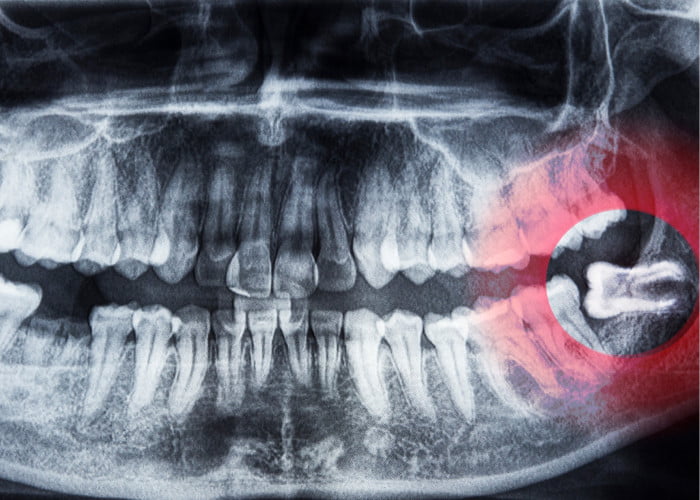Wisdom tooth cavities, also referred to as cavities in the third molars, are a significant dental concern that warrants attention. These cavities typically develop in the deep fissures and crevices of the wisdom teeth, which are the final set of molars to emerge at the back of the mouth. Proper understanding of wisdom tooth cavities and their effects is crucial for maintaining optimal oral health.
What should you do if you have a wisdom tooth cavity?
If you have a wisdom tooth cavity, it is important to see a dentist as soon as possible. Delaying treatment can lead to further decay, infection, and discomfort. A dentist can evaluate the size and extent of the cavity, assess the condition of the tooth structure, and recommend the most appropriate treatment plan.
Treatment options may include dental fillings, dental crowns, or extraction. Prompt attention to your wisdom tooth cavity can help prevent more serious oral health issues in the future.
When must a wisdom tooth with a cavity be considered for removal?
When considering the removal of a wisdom tooth with a cavity, several factors need to be taken into account to ensure the best course of action for dental health. The decision to remove a wisdom tooth is typically made based on the following considerations:
- Severity of the cavity: The extent and severity of the cavity play a significant role in determining whether the wisdom tooth should be removed. If the cavity is deep and extensive, causing significant damage to the tooth structure, removal may be necessary.
- Pain and discomfort: If a wisdom tooth with a cavity is causing persistent pain, discomfort, or swelling, it may indicate an infection or further complications. In such cases, extraction may be recommended to alleviate symptoms and prevent the spread of infection.
- Difficulty in cleaning: Wisdom teeth are often located at the back of the mouth, making them challenging to clean thoroughly. If a wisdom tooth with a cavity is inaccessible or difficult to clean effectively, it increases the risk of recurrent decay and oral health problems. Extraction may be considered to eliminate the cavity and prevent future complications.
- Impaction or crowding: Wisdom teeth may become impacted, meaning they do not fully emerge or develop properly. Impacted wisdom teeth can cause crowding and misalignment of adjacent teeth, increasing the likelihood of cavities and other dental issues. In such cases, removal may be recommended to prevent further dental problems.
- Risk of complications: Wisdom tooth cavities can lead to complications such as gum infections, abscesses, or damage to neighboring teeth. If there is a significant risk of complications or potential damage to oral health, extraction may be the best course of action.
- Individual circumstances: Each individual’s oral health situation is unique, and the decision to remove a wisdom tooth with a cavity must be based on a comprehensive evaluation by a dental professional. Factors such as the overall health of the tooth, the patient’s age, dental history, and future oral health considerations are taken into account.
Read more: Maintaining oral health: Dealing with cavities on front teeth
-

When must a wisdom tooth with a cavity be considered for removal?
When can the wisdom tooth cavity be repaired by placing a dental filling?
When considering the repair of a wisdom tooth cavity through dental filling, several factors come into play. The decision to proceed with a dental filling is based on specific criteria assessed by a dentist, ensuring the most appropriate treatment plan for the individual.
- The size of the cavity is a primary consideration. If the cavity is small to moderate in size, a dental filling can often be an effective solution. It allows the dentist to remove the decayed portion of the tooth and fill it with a suitable material, restoring its structure and preventing further decay.
- The condition of the tooth structure is also crucial. The dentist evaluates the strength and integrity of the tooth to ensure it can support a dental filling. If the tooth structure is severely weakened or compromised due to extensive decay or fractures, alternative treatments, such as dental crowns or extraction, may be recommended.
- Accessibility plays a role in determining the feasibility of a dental filling for a wisdom tooth cavity. Wisdom teeth are located at the back of the mouth, which can present challenges in reaching and treating the cavity effectively. If the cavity is accessible and can be adequately cleaned and prepared, a dental filling may be a suitable option.
- The extent of decay is carefully evaluated. If the decay has not spread extensively and is confined to the affected wisdom tooth, a dental filling can be considered. However, if the decay has reached a more advanced stage, affecting a significant portion of the tooth or nearby teeth, alternative treatments may be necessary.
- The overall oral health of the patient is taken into account. If there are underlying oral health issues, such as gum disease or multiple cavities in different teeth, a comprehensive treatment plan may be recommended instead of a dental filling alone.
Read more: How long does it take for cavities to form.
-

When can the wisdom tooth cavity be repaired by placing a dental filling?
Contact us
Contact Dentist For Life to address your wisdom tooth cavities. Our experienced team of dentists is well-equipped to provide comprehensive care and effective treatment for wisdom tooth cavities.
At Dentist For Life, we prioritize patient comfort and strive to create a relaxing environment for your dental visits. Our friendly staff will guide you through the process, answering any questions or concerns you may have regarding your wisdom tooth cavities.
By addressing your wisdom tooth cavities promptly, you can prevent further decay, alleviate discomfort, and preserve your oral health. Don’t hesitate to contact Dentist For Life to schedule an appointment and receive expert care for your wisdom tooth cavities.
Conclusion
If you are experiencing discomfort or suspect you have a wisdom tooth cavity, it is important to find a dentist for wisdom tooth removal near me, especially dentists in Marysville, Ohio, promptly. Your dentist can evaluate the extent of the cavity and recommend the most appropriate treatment plan tailored to your individual needs. With proper care and attention, you can prevent further decay, alleviate discomfort, and preserve your oral health.



